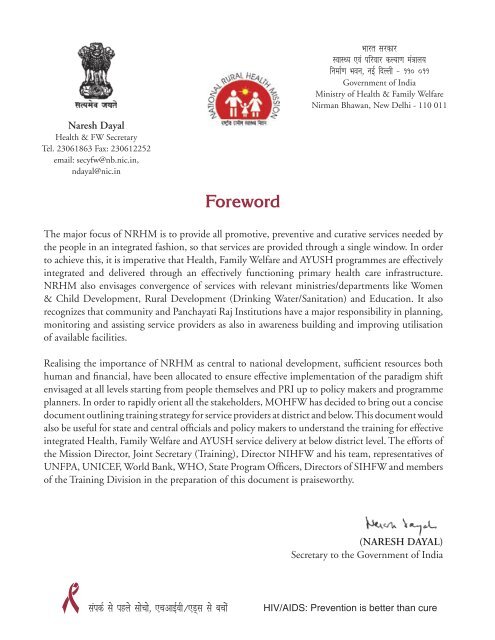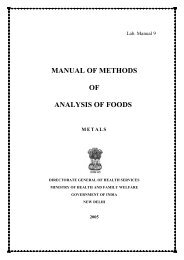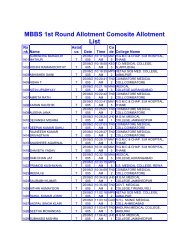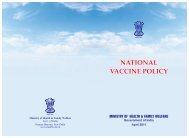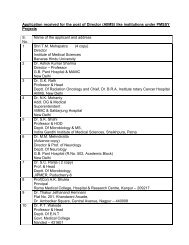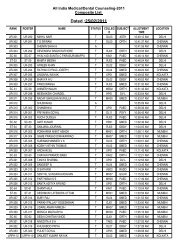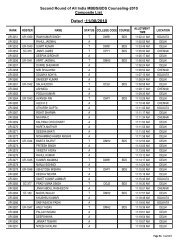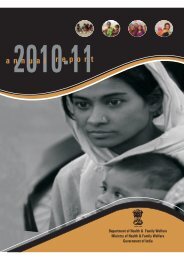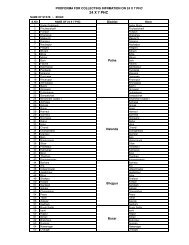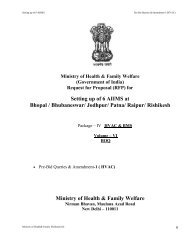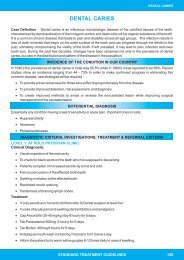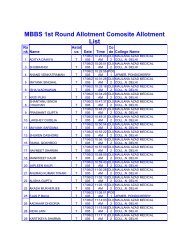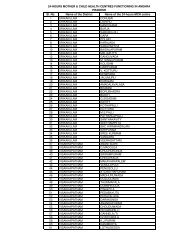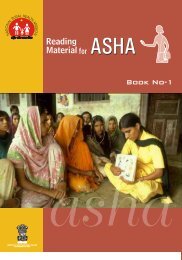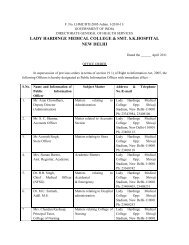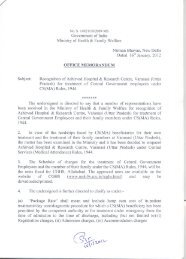National training strategy - Ministry of Health and Family Welfare
National training strategy - Ministry of Health and Family Welfare
National training strategy - Ministry of Health and Family Welfare
You also want an ePaper? Increase the reach of your titles
YUMPU automatically turns print PDFs into web optimized ePapers that Google loves.
Naresh Dayal<br />
<strong>Health</strong> & FW Secretary<br />
Tel. 23061863 Fax: 230612252<br />
email: secyfw@nb.nic.in,<br />
ndayal@nic.in<br />
Foreword<br />
Hkkjr ljdkj<br />
LokLF; ,oa ifjokj dY;k.k ea=ky;<br />
fuekZ.k Hkou] ubZ fnYyh & 110 011<br />
Government <strong>of</strong> India<br />
<strong>Ministry</strong> <strong>of</strong> <strong>Health</strong> & <strong>Family</strong> <strong>Welfare</strong><br />
Nirman Bhawan, New Delhi - 110 011<br />
The major focus <strong>of</strong> NRHM is to provide all promotive, preventive <strong>and</strong> curative services needed by<br />
the people in an integrated fashion, so that services are provided through a single window. In order<br />
to achieve this, it is imperative that <strong>Health</strong>, <strong>Family</strong> <strong>Welfare</strong> <strong>and</strong> AYUSH programmes are effectively<br />
integrated <strong>and</strong> delivered through an effectively functioning primary health care infrastructure.<br />
NRHM also envisages convergence <strong>of</strong> services with relevant ministries/departments like Women<br />
& Child Development, Rural Development (Drinking Water/Sanitation) <strong>and</strong> Education. It also<br />
recognizes that community <strong>and</strong> Panchayati Raj Institutions have a major responsibility in planning,<br />
monitoring <strong>and</strong> assisting service providers as also in awareness building <strong>and</strong> improving utilisation<br />
<strong>of</strong> available facilities.<br />
Realising the importance <strong>of</strong> NRHM as central to national development, suffi cient resources both<br />
human <strong>and</strong> fi nancial, have been allocated to ensure effective implementation <strong>of</strong> the paradigm shift<br />
envisaged at all levels starting from people themselves <strong>and</strong> PRI up to policy makers <strong>and</strong> programme<br />
planners. In order to rapidly orient all the stakeholders, MOHFW has decided to bring out a concise<br />
document outlining <strong>training</strong> <strong>strategy</strong> for service providers at district <strong>and</strong> below. This document would<br />
also be useful for state <strong>and</strong> central <strong>of</strong>fi cials <strong>and</strong> policy makers to underst<strong>and</strong> the <strong>training</strong> for effective<br />
integrated <strong>Health</strong>, <strong>Family</strong> <strong>Welfare</strong> <strong>and</strong> AYUSH service delivery at below district level. The efforts <strong>of</strong><br />
the Mission Director, Joint Secretary (Training), Director NIHFW <strong>and</strong> his team, representatives <strong>of</strong><br />
UNFPA, UNICEF, World Bank, WHO, State Program Offi cers, Directors <strong>of</strong> SIHFW <strong>and</strong> members<br />
<strong>of</strong> the Training Division in the preparation <strong>of</strong> this document is praiseworthy.<br />
(NARESH DAYAL)<br />
Secretary to the Government <strong>of</strong> India<br />
laidZ ls igys lkspks] ,pvkbZoh@,M~l ls cpksa HIV/AIDS: Prevention is better than cure


